We have enjoyed another fantastic day on the tropical island of Koh Sdach with Projects Abroad, Cambodia. We spent the morning diving a nearby island with the volunteers, during which we focused on assisting a volunteer with her photography skills and Nicholas also removed some netting from a coral. The other volunteers were busy conducting a coral reef survey dive to assess the health of the reef ecosystems in the area. The survey dives are an important part of the project and the data gathered will help Projects Abroad understand which areas of reef are healthy and which species are abundant or lacking given local fishing and pollution pressures. All of that information can be used in the future to build management plans for the reefs with the local communities, to help them conserve their precious reef resources for future generations.
Our afternoon was spent learning about the importance of coral reefs.
Did you know that coral reefs are more productive than rainforests and contain an enormous diversity of life? They are effectively the rainforests of the ocean and are vitally important for our survival and that of other species.
Coral reefs provide land protection for coastal communities around the world, which is extremely important when we consider the rise in occurrence of tsunamis and their potential impacts upon atoll and other coastal communities.
Coral reefs are breeding grounds for a number of species and provide valuable fisheries we rely upon. The fish species contained within coral reefs are the single protein source for over 30 million people.
If we do not protect coral reefs we will be denying communities their only source of protein, which is of course unthinkable and unacceptable. Reefs also provide cultural importance for some communities, such as those within Fiji who believe their gods reside within the reefs. Certain reef species also have pharmaceutical uses, which is something being researched by scientists around the world in recent years. In short, they are incredibly valuable both to us and to the health of the oceans.
With that in mind, you would think we would protect them at all costs?
Unfortunately that is not the case and coral reefs are threatened by overfishing and destructive fishing methods, which destroy the very reefs those fisheries rely upon. In parts of the world, coral reefs are destroyed by dynamite as a method of fishing. The dead fish are collected and sold onwards or are consumed locally. It is a very effective way to destroy a fishery and corals are extremely slow growing. Some species of hard coral only grow 2cm every year, which means they cannot recover from those destructive fishing methods.
It is always wise to find out what type of fish you are buying and how it was caught before you purchase it. Otherwise you could be inadvertently supporting an industry that is destroying the reefs.
Coral reefs are also affected by sewage, agricultural and industrial effluents that run off the land and find their way into the oceans directly from the land or via drainage systems. They are also smothered by solid pollutants such as discarded netting, plastic bags and other plastic materials. A coral reef will die under such materials and yet proper waste management can entirely prevent the problem. Do you know where you drains discharge to at home? If your washing machine drains to a surface water drain or you wash your car next to such a drain, you are also adding to the problem of watercourse and ocean pollution. You may not live next to a reef but those discharges will affect and potentially kill your local wildlife in whichever watercourse your area drains to. Please ensure your sink and appliance drains are not misconnected. They should drain to mains sewerage and not your local river. As an example, milk in watercourses is one of the most destructive and polluting materials and yet we pour it down our drains without consideration.
Perhaps you could take a moment today to think about how you dispose of your waste at home and which fisheries you support. We can all do our bit to keep the oceans clean and healthy.



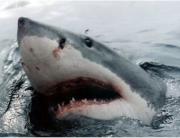
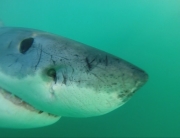
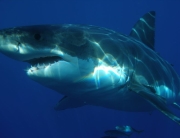
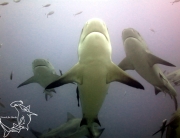
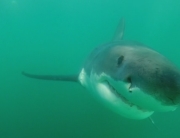










Follow Us